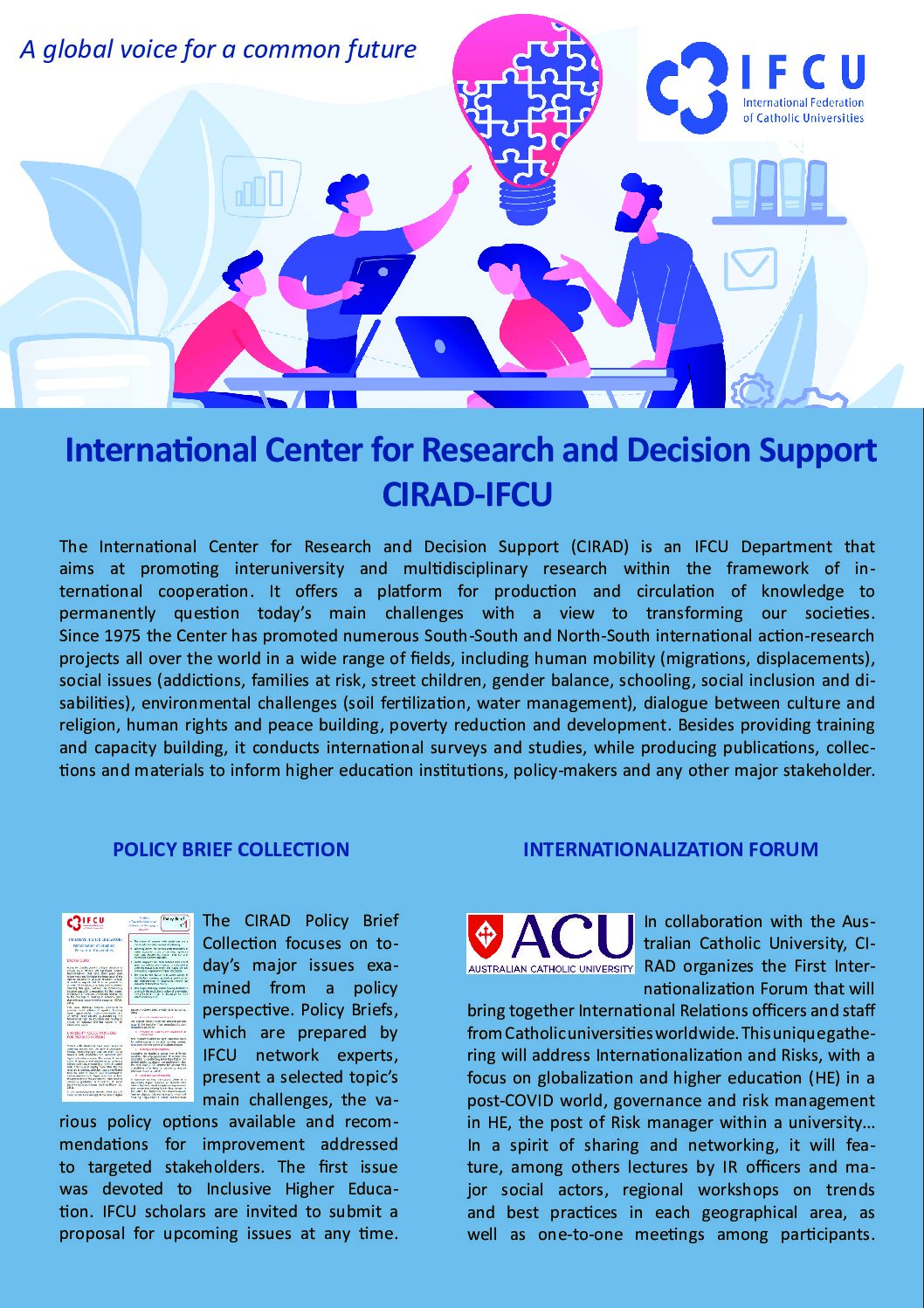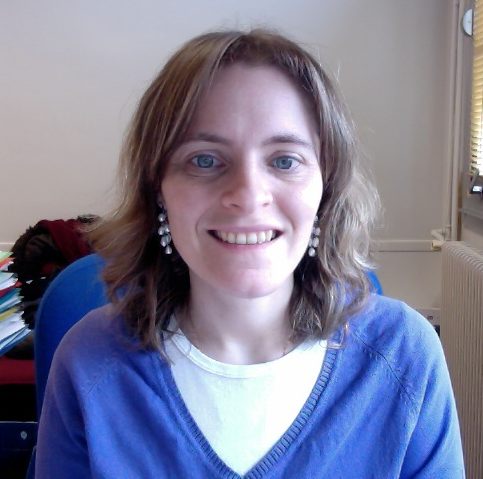Reflection on the DCS and the intuitions, challenges and opportunities of the Synodal process by the IFCU President

Short reflection on the DCS and the intuitions, challenges and opportunities
of the synodal process
Prof. Dr. Isabel Capeloa Gil
President – International Federation of Catholic Universities (IFCU)
Catholic universities are at the forefront of the Church’s intervention in the world. Their (our) mission is to promote spiritual, intellectual and professional formation of youth communities, but it is important to note that – at least in Europe – our constituencies are mostly made up of non-believers. And yet, in our universities these young believers and non-believers seek purposeful lives, they find themselves struggling to understand their role in the world, they ultimately wish to be protagonists of a better society. The university is a safe space to pursue this search. For those students who are non-believers, the Catholic university is the first space where they hear the message of the Gospel, where they may be inspired by Christian humanism and called upon to understand the dialogue between faith and reason. This dialogue is what makes the safe space of the university also a risky environment, because knowledge is created out of the humble awareness about one’s own ignorance. And it is from this permanent awareness of the insufficiency of one’s limited reasoning that knowledge and understanding arise. What the educational process teaches is that we are never done with being undone in the pursuit of scientific truth and that this pursuit is done collectively, walking together with others, in our communities of students and faculty. Just as we hope to do here.
Many points in the Document for the Continental Stage (DCS) resonate with the concerns of our members, for instance, the recognition of the dignity of women and their role in the Church, being more inclusive to the disenfranchised – even the law says in dubio pro reo, so why cannot the Church be more merciful, and also the problem of clericalism. Unfortunately, not much importance is given in the DCS to education as a necessary driver of the required transformation, so allow me a few brief remarks on this matter.
The DCS speaks (paragraph 60) of a conversion of the Church’s culture and the need to concretely debate the establishment of a new culture in its structures and practices. Cultural conversion does not occur overnight, and top down decisions will likely be met with mistrust and resistance. Transformation must be lived, accepted and it must be prepared. Hence, cultural conversion requires first and foremost an educational renewal, which may occur on three levels: a theological preparation of the laity to be able to perform a more diverse spectrum of roles in Church structures; a systematic formation of the people of God to articulate the challenges brought about by the changing social, political and cultural landscape with scripture and tradition; a radical renewal of the training and education of clergy in the spirit of Veritatis Gaudium. That is, to rethink pastoral formation as truly integral education, with a transversal and transdisciplinary orientation, overcoming monodisciplinary approaches and bringing into the curriculum approaches that deal with the societal problems of the times. Arguably, this suggests articulating a theology of the spirit with a theology of experience, taking into consideration, just as Jesus did, the murky reality of the communities the new pastors shall accompany.
We firmly view the synod is an opportunity to rekindle a Church that goes forth and does good, energized by personal transformation, while aiming at collective and institutional conversion.
Link to the DCS website: https://www.synod.va/en/highlights/working-document-for-the-continental-stage.html
Download the IFCU President reflection in PDF Format here: https://www.cirad-fiuc.org/wp-content/uploads/2023/02/IFCUSynod-Isabel-Capeloa.pdf


